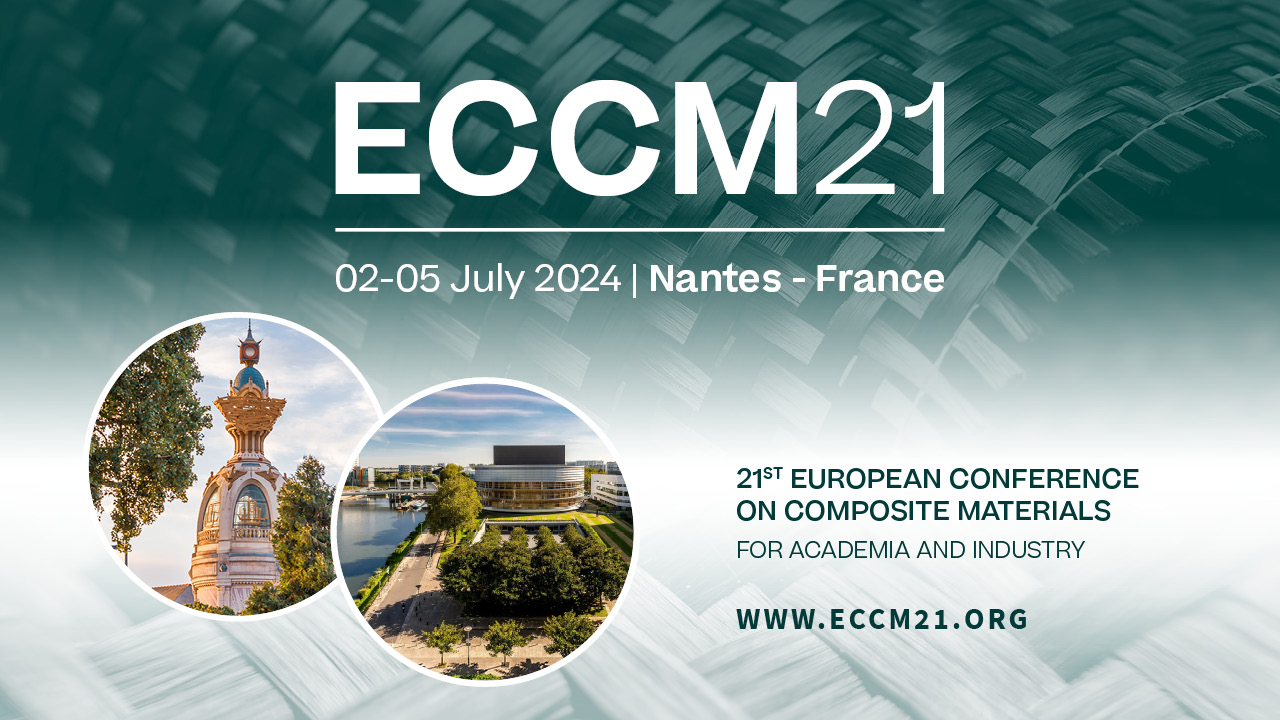Thermal fatigue effects on the hydrogen permeation characterisation of thin-ply carbon fibre composites for liquid hydrogen tanks
Topic(s) : Special Sessions
Co-authors :
Junyao SONG (UNITED KINGDOM), Zhenzhou WANG (UNITED KINGDOM), Wendell BAILEY , Meisam JALALVANDAbstract :
Carbon fibre reinforced polymers (CFRPs) stand out as a promising light-weight material for constructing aircraft and space vehicles due to their excellent specific mechanical properties. With the growing interest in decarbonisation in the aviation industry, liquid hydrogen (LH2) is gaining significantly increased attention as the most promising solution to realise net-zero emission for commercial aircraft with long flight duration. However, the challenges of cracking then leaking caused by the extreme operating conditions (cryogenic temperature down to 20 Kelvin (K) and extreme thermal fatigue) are resisting the approval of using the CFRPs as the tank material. While carrying LH2, the structural material will be exposed to a 20 K environment, resulting in significant thermal gradients in transverse and through-the-thickness directions of composites. The concentration of transverse thermal stress will be triggered as sequence, which could lead to the delamination and microcrack formation within the matrix of CFRPs. Ultimately, the bridging of microcracks within a layer and overlapping of microcracks through layers could cause hydrogen leakage, which can break the vacuum insulation and cause significant evaporation of LH2, which would finally create a hazard of fire and explosion. Thin-ply materials have demonstrated high resistance to crack initiation due to their reinforced ply strength, and the fine dispersion of layers in thin-ply laminates helps alleviate the interlaminar stress as well. Despite these advantages, the performance of thin-ply CFRPs under cryogenic cycling conditions remains insufficiently explored, and the influence of ply thickness is still unclear based on existing experimental research.
Therefore, to investigate the hydrogen permeability and thermal fatigue behaviours of the promising CFRP material, USN 030 thin-ply CFRP laminates with the stacking sequences of [0/90]20s, [02/902]10s, [04/904]5s are selected as testing specimens in this study. The effect of the ply thickness of the material on the post-cycling permeability will be indicated by conducting helium permeation tests. Though in realistic scenarios the cycling condition will be low to 20 K, the thermal cycling with the temperature from 77 K to room temperature will be adopted in this paper as the preliminary study of cryogenic cycling effects, considering that 77 K cycling is more widely employed in current research due to its high feasibility. Permeation tests are carried out after 0, 5, 10, 15 and 30 cycles. The protocol of the permeability testing will be discussed in this paper. The cracking resistant capability of thin-ply material will be discussed through the testing results. The experimental results are expected to provide critical information for the design of LH2 fuel tanks.
Therefore, to investigate the hydrogen permeability and thermal fatigue behaviours of the promising CFRP material, USN 030 thin-ply CFRP laminates with the stacking sequences of [0/90]20s, [02/902]10s, [04/904]5s are selected as testing specimens in this study. The effect of the ply thickness of the material on the post-cycling permeability will be indicated by conducting helium permeation tests. Though in realistic scenarios the cycling condition will be low to 20 K, the thermal cycling with the temperature from 77 K to room temperature will be adopted in this paper as the preliminary study of cryogenic cycling effects, considering that 77 K cycling is more widely employed in current research due to its high feasibility. Permeation tests are carried out after 0, 5, 10, 15 and 30 cycles. The protocol of the permeability testing will be discussed in this paper. The cracking resistant capability of thin-ply material will be discussed through the testing results. The experimental results are expected to provide critical information for the design of LH2 fuel tanks.

